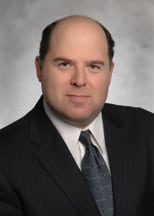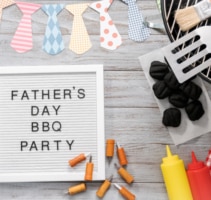By Darren P. Salute
As cliché as it might sound, the first Father’s Day did not begin with a whimper but because of a bang. On December 6, 1907, a massive explosion occurred in the Fairmont Coal Company mines located in Monongah, West Virginia. The mining disaster killed an estimated 365 miners, most of whom were immigrants and fathers. The Monongah Mining Disaster devastated the surrounding community and created more than 1,000 fatherless children in that one day.
After the disaster, Mrs. Grace Golden Clayton approached her minister at William’s Memorial Methodist Episcopal Church South with her plan to honor fathers in the Monongah Mining community. While Clayton had not lost her father in the mining explosion, she felt profound sympathy for the children who were mourning in the wake of losing their fathers. A Father’s Day service was held at Williams Memorial on July 5, 1908, without much fanfare. It would take another two years before the idea of a Father’s Day would be attempted.
After hearing a Mother’s Day sermon by Reverend Dr. Henry Rasmussen in her hometown church, Sonora Smart Dodd of Spokane, Washington believed a similar day should be set aside to honor fathers as well. In the United States, Ms. Dodd is generally credited with the founding of Father’s Day. On June 6, 1910, Ms. Dodd approached the City with her petition outlining the idea for an annual observance to honor fathers. Ms. Dodd received overwhelming support, and the City of Spokane held the first Father’s Day celebration on Sunday, June 19, 1910. This June 19, 2022, as we again find ourselves celebrating Father’s Day as a national holiday, will mark the 112th anniversary of that first Father’s Day in Spokane, but not the 112th anniversary of Father’s Day as a national holiday.
Father’s Day was not automatically or universally accepted at first. Woodrow Wilson, the first U.S. President to celebrate Father’s Day in June of 1916, liked the idea so much that he pushed to make it a national holiday (he had just succeeded in making Mother’s Day a national holiday in 1915). However, Congress resisted, fearing that a Father’s Day would take away support from the Mother’s Day holiday and commercialize the day for fathers, causing more harm than good.
Undeterred, Ms. Dodd traveled around the country speaking to fathers to gain their support. However, she was met with hard criticism. Her efforts to convince the United States to formally recognize a day for fathers were met with even more hurdles over the years. In 1924, President Calvin Coolidge urged states to observe Father’s Day nationwide but refused to issue an official proclamation for the holiday. In the 1930s, there was an effort to combine Mother’s Day and Father’s Day into a single “Parent’s Day” holiday. (Many children cheered but their cheers were drowned out and eventually turned to silence.)
More than 50 years passed before Father’s Day became a recognized holiday celebrated on the third Sunday of June in the United States. First, President Lyndon Johnson signed an Executive Order in 1966. But it was still not officially recognized as a federal holiday until six years later in 1972 when, during his re-election campaign, then President Richard Nixon signed an official proclamation setting Father’s Day permanently on the third Sunday in June nationwide.
So now, every third Sunday in June, fathers throughout the country take out hamburgers and hotdogs, tri-tips, and ribs of all shapes and sizes and fire up that grill. Unfortunately, grill fires and other grilling-related injuries also occur on Father’s Day. In fact, such injuries reach their peak in the months of May through August, accounting for approximately 18,000 personal injuries each summer and 9,000 fires each year. While many of these injuries result from a lack of barbeque skills or improper use of grills and other equipment, even the most careful griller remains at risk if there are defects with the grill. Here a just a few examples:
- In 2013 in Fillmore, California, a family member at a barbeque used a hand-held propane lighter to light the charcoal grill. He then placed the propone lighter down, close to the heating grill, and then set the propane bottle next to the barbecue. The radiant heat from the barbecue heated up the gasses in the hand-held propane bottle, which then expanded to a point where it exploded. One of the guests suffered a severe injury to her neck and later died. Her husband also suffered catastrophic life-altering injuries.
- In 2015, a high school teacher in Orlando, Florida decided to grill steak and chicken on two gas grills located in an outdoor kitchen of his upscale apartment complex. When he fired up the first grill, there was an explosion that knocked him to the ground unconscious. The second grill, now located behind him, also blew up. The high school teacher suffered first and second-degree burns, cuts, bruises, and abrasions as a result of the two explosions. The Fire Department’s investigation revealed the cause of the blast to be human error – someone else had used the grill behind him prior to his arrival and left the gas on. By the time the teacher lit the first barbeque, the gas had accumulated around the grills, causing the explosion when the first grill was lit.
- Also in 2015, a class-action lawsuit was filed against Sears alleging that certain Kenmore grills with firebox trays were defective and posed a safety hazard when the tray disintegrated and exposed the grills’ propane tanks to open flames. Sears denied any wrongdoing but settled the class action to avoid costly litigation.
- In 2016 in Milford, Pennsylvania, the plaintiff was making dinner with a Blue Rhino grill he had purchased at Walmart. Plaintiff had used the grill for several years without incident, but on this particular day, he had to get a refill for the gas tank. As the plaintiff was making dinner, a fire broke out due to liquid propane leaking out of the tank and burning the grill itself. Plaintiff attempted to put out the fire with a fire extinguisher when the grill exploded, inflicting him with serious burn injuries.
- In 2018, a Michigan man sued The Libman Company, the manufacturer of a metal brill brush. He claimed he swallowed a stray bristle from a grill brush after barbecuing chicken which caused abdominal bloating, intestinal damage, and other problems. He required surgery to remove the metal bristle. However, a federal appeals court ruled in favor of the company, stating that the brush was a simple tool that wasn’t unreasonably dangerous and didn’t require warnings.
Following a few simple barbecue grilling and fire safety precautions before Father’s Day can help avoid a potential Father’s Day tragedy and a visit to the emergency room.
First, make sure to clean your grill before and after every use. An unclean grill allows excessive grease to build up at the top that can easily catch on fire or spark other flammable items nearby to catch fire and create a Father’s Day grilling nightmare. All safe grillers make sure to scrape down and clean the grill before every use. Also, they make sure to only grill outside and not indoors;
Second, barbecue burns can happen in an instant and are often caused when the flame suddenly jumps up after placing food on the grill. Generally, meats containing a high percentage of fat cause this effect. This danger of a fire flare-up is increased if the grill is left uncleaned as mentioned previously herein. So, if you are going to be grilling with meats containing high-fat content, you need to take all necessary precautions and, CLEAN THAT GRILL (and be sure to check the metal brush first to make sure there are no loose bristles!);
Third, if you’re cooking with a propane tank, watch out for propane leaks. A simple and easy way to determine if your propane tank is leaking is to place the tank into a bucket of water. If there is a leak, there will be propane bubbles.
Thus, by taking simple precautions, you can avoid a Father’s Day disaster and have a Father’s Day to remember.
GO, DADS……

Darren P. Salute, Esq. is an Associate at Bradley, Gmelich & Wellerstein LLP. His practice includes counseling clients and litigating civil and business matters. He has litigation experience in many areas of law including business litigation, franchise litigation and registration, intellectual property, trademark, copyright, trade dress and trade secret infringement, real estate, unfair competition, and related business torts.
Darren earned his Bachelor of Arts in Political Science at California State University, Northridge, California (1991). He was part of the Pi Sigma Alpha: Political Science Honor Society from 1989 to 1990. Mr. Salute received the Jenniellen Ferguson Award for Excellence in Political Science in 1991. He then acquired his Juris Doctor in 1994 from Southwestern University School of Law. He is a member of the State Bar of California and the Los Angeles County Bar Association. He is admitted to the Federal District Court for the Central District of California.

